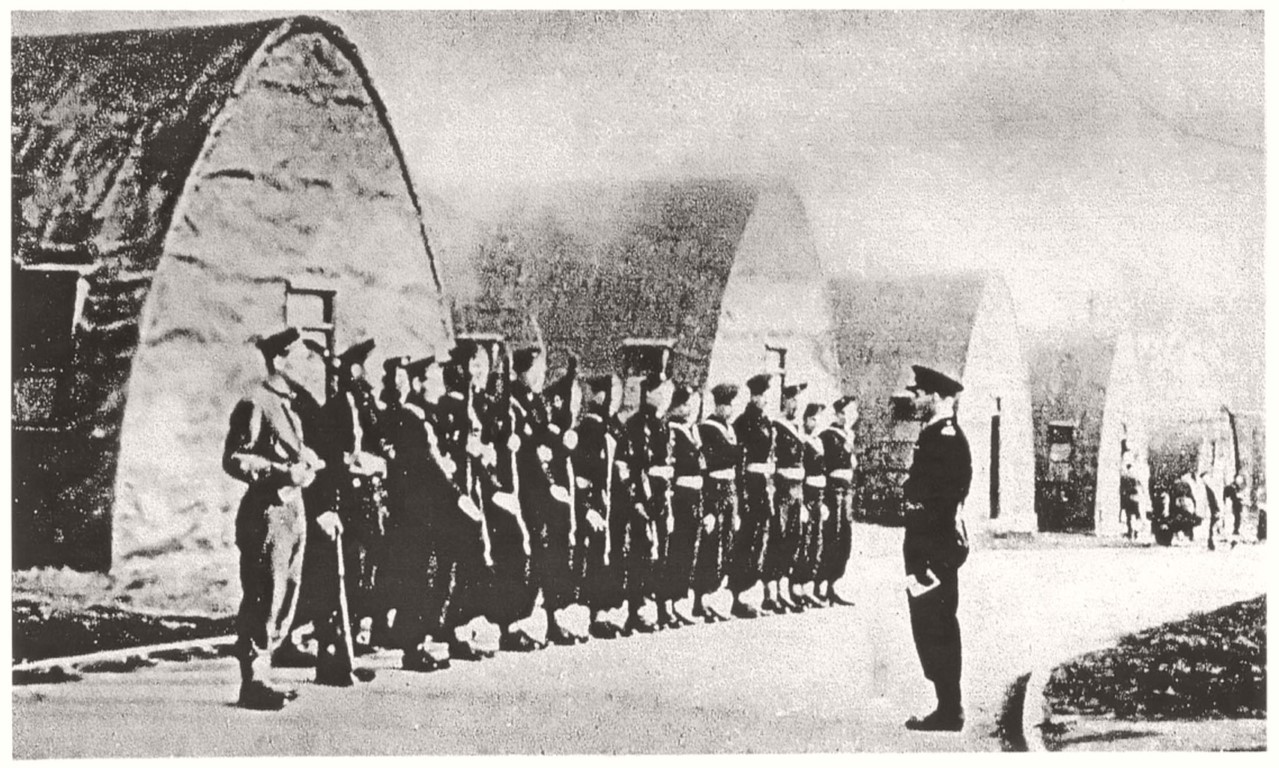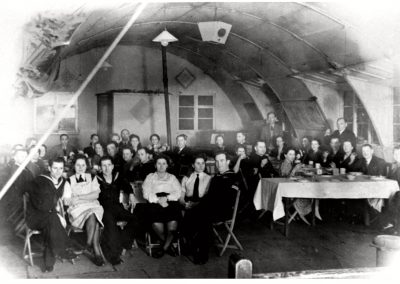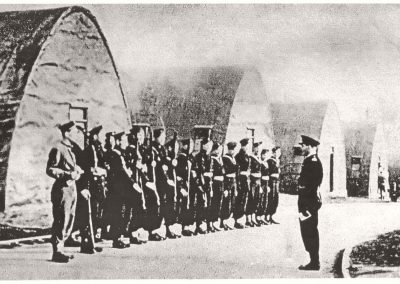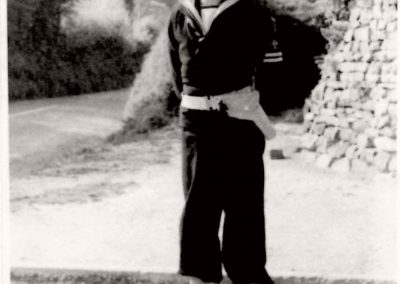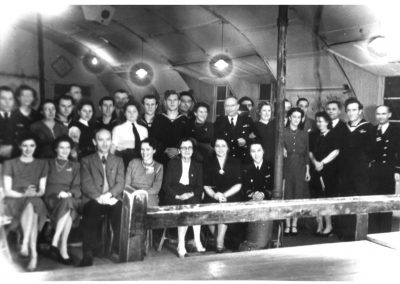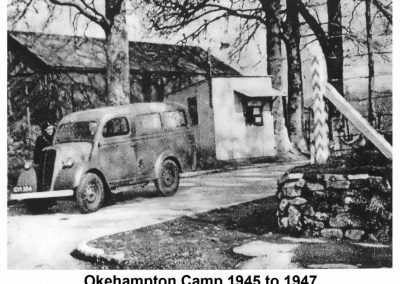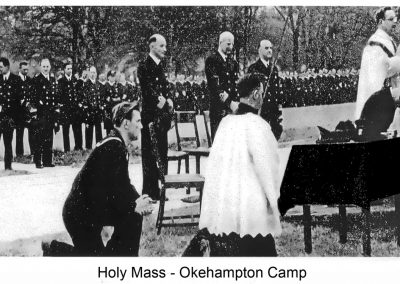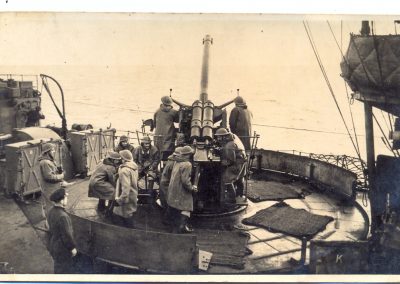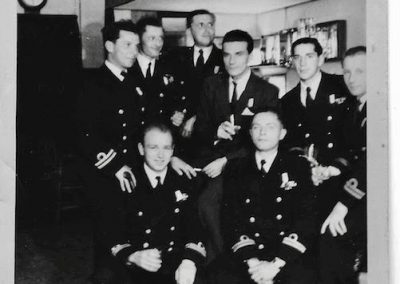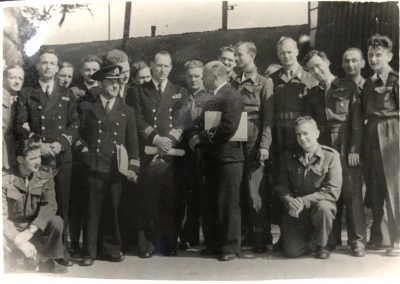December 1944 – March 1947
During World War II the Polish Navy in exile was based in Britain. In 1944, the Naval Warrant Officer School moved to Okehampton, from Devonport (Plymouth), via Bickleigh.
Between 1944 and 1946 Okehampton was home to the Polish Naval Camp and the Polish Naval Warrant Officer School. The Women’s Naval Auxiliary Service was also located at the camp.
The Navy occupied a camp on the Oaklands Estate – land which belonged to the then wartime mayor of Okehampton, George Gratton. The land was requisitioned for the war effort, and the camp had previously been occupied by the American military.
The camp was situated where the Rugby Club is now, just off Lodge Hill. It was named after the Polish ship ORP Bałtyk and jokingly referred to as a “Stone Frigate”.
ORP Bałtyk was a large group of naval personnel, around 600 people at any one time. It was divided into units, such as the Reserve Unit – seamen “between the ships” awaiting assignment, the Transitional Unit – seamen who were awaiting demobilisation or who were temporarily incapable of service and the Camp Unit, which acted like the permanent crew on the ship, responsible for the running of the Camp.
Life for the residents was not easy, with many staying only for short periods before being called away for duty again.
But despite the uncertainties of war, the camp also featured many aspects of normal daily life.
Many marriages were celebrated. Wedding feasts took place in a Community Room and the Naval Band provided entertainment. Holy Mass was held and the camp had its own Post Office. The Officer’s Mess was a popular venue. The bar had an unusual name: ‘The Lost Weekend’.
-

Polish naval canteen, Okehampton, c. 1947. Image Courtesy of the Museum of Dartmoor Life.
-

Briefing the guard, Polish Naval Camp, Okehampton,c 1947. Image Courtesy of the Museum of Dartmoor Life.
-

Polish Leading Seaman on Guard Duty. Image courtesy of the Museum of Dartmoor Life
-

Okehampton Polish naval camp group. Image courtesy of the Museum of Dartmoor Life.
-

Entrance to Okehampton Camp. Image courtesy of the Museum of Dartmoor Life.
-

Holy Mass at Okehampton Camp. Image Courtesy of the Museum of Dartmoor Life.
-

The crew of the Polish Navy Destroyer ORP Piorun operating the canon. Image courtesy of Peter Szypko.
-

Naval officers in the 'Lost Weekend' bar. Image courtesy of Tony Olszowski.
-

Polish Naval Officers and army personnel at the Okehampton camp. Image courtesy of Tony Olszowski.

